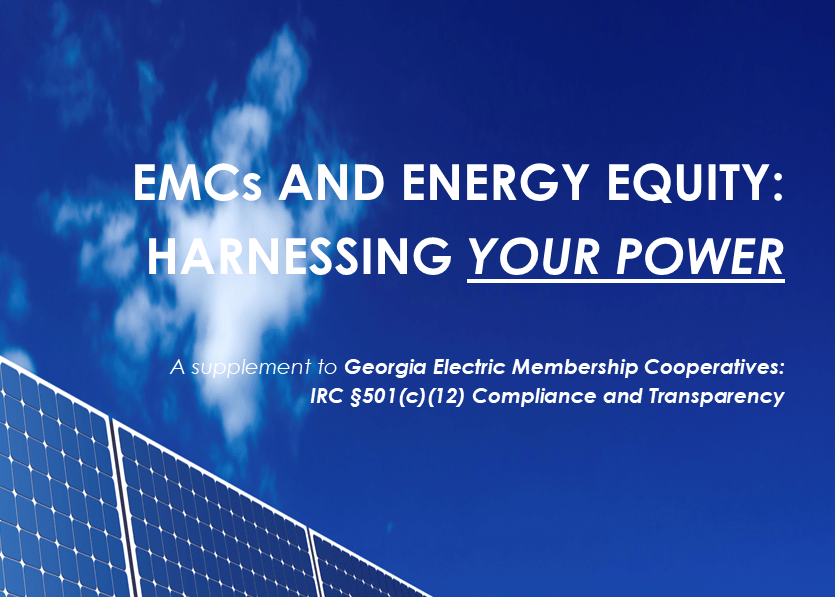Amid the ongoing COVID-19 crisis, Georgians now face high unemployment rates and increased financial insecurity as bills mount with little relief in sight. Energy bills lay among the pile of bills facing cash-strapped Georgians right now. Every year, thousands of Georgians struggle with high energy bills, but the COVID-19 crisis has exacerbated this energy burden for many families in our state. At least 44% of Georgians receive their energy from Electric Membership Cooperatives (“EMCs”), nonprofit organizations controlled by their customers (known as “members”). Members can participate in meetings, cast votes on EMC decisions, and even serve on their EMC’s governing board. It may surprise some Georgians to learn that the company providing their energy is a nonprofit organization and that they themselves are member-owners. In other words, they have a say in how their EMC operates, including ensuring that decision-making around programs is more reflective of their needs and their community’s needs.
For this reason, the Energy Efficiency for All—Georgia coalition created EMCs and Energy Equity: Harnessing Your Power, a toolkit to educate EMC members about the crucial role they can play in making energy more accessible and equitable in their communities. Energy equity refers to the fair distribution of the benefits and burdens of the ways we produce and consume energy. Creating a more equitable Georgia means bringing comprehensive, accessible programs, like energy efficiency and solar, to utilities and EMCs throughout the state. In the toolkit, EMC members will learn about EMC structure, what other EMCs in our region are doing to support energy equity, and energy programs members can advocate for at their EMCs to better meet the needs of their communities.
During a time when Georgians are experiencing unprecedented financial instability, it is essential that people understand their power to address their energy needs and the needs of their communities. By understanding how EMCs work and the opportunities available, members can use their voices to advocate for necessary programs to address energy needs amid the ongoing crisis. We hope the toolkit starts a broader conversation around energy equity in Georgia and invigorates Georgians to get active at their EMCs. Read it here and stay tuned for upcoming webinar opportunities to learn how EMC members can harness their power!
Consider joining the Energy Equity—Georgia group on Facebook to stay connected with energy equity advocates around Georgia! Click here to join today.
Many thanks to Natalia Rosas, Agnes Scott College Bevier Summer Public Health Intern, for contributing to this blog.

